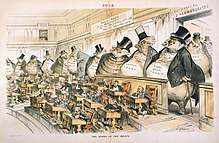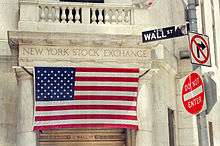

The economy of the United States is a highly developed mixed economy. It is the world's largest economy by nominal GDP and the second-largest by purchasing power parity (PPP). It also has the world's eighth-highest per capita GDP (nominal) and the tenth-highest per capita GDP (PPP) in 2018. The U.S. has the most technologically powerful economy in the world and its firms are at or near the forefront in technological advances. The U.S. dollar is the currency most used in international transactions and is the world's foremost reserve currency, backed by its economy, its military, debt reimbursement, and the petrodollar system. Several countries use it as their official currency, and in many others, it is the de facto currency. The largest U.S. trading partners are China, Canada, Mexico, Japan, Germany, South Korea, United Kingdom, France, India, and Taiwan. The U.S. is the world's largest importer and the second-largest exporter. It has free trade agreements with several nations, including NAFTA, Australia, South Korea, Israel, and few others which are in effect or under negotiating stage.
Quotes
B
- Banks are the temples of America. This is a holy war. Our economy is our religion.[1]
- Giannina Braschi (November 28, 2011), in the text "United States of Banana"
- When the economy falls over, we won’t be jellyfish. We’ll still have backbones and teeth, white teeth, and double standards to equalize the equilibrium that is never the same.
- Giannina Braschi (November 28, 2011), in the text "United States of Banana"
- Only "America," of all national designations, took on the combined force of eschatology and chauvinism. Many forms of nationalism have laid claims to a world-redeeming promise; many Christian sects have sought, in open or secret heresy, to find the sacred in the profane; many European Protestants have linked the soul’s journey and the way to wealth. But only the "American Way," of all modern symbologies, has managed to circumvent the contradictions inherent in these approaches. Of all symbols of identity, only "American" has succeeded in uniting nationality with universality, civic and spiritual selfhood, sacred and secular history, the country’s past and the paradise to be, in a single transcendent ideal.
- Sacvan Bercovitch, as quoted in "Donald Trump Hates America: The rest of us can love America well" (18 July 2019), by David Brooks, The New York Times
- [T]he stakes for America are never small. If our country does not lead the cause of freedom, it will not be led. If we do not turn the hearts of children toward knowledge and character, we will lose their gifts and undermine their idealism. If we permit our economy to drift and decline, the vulnerable will suffer most.
- George W. Bush, inaugural address (20 January 2001), Washington, D.C.
C
- [T]he chief business of the American people is business. They are profoundly concerned with producing, buying, selling, investing and prospering in the world.
D
- The object of this new American industrial empire, so far as that object was conscious and normative, was not national well-being, but the individual gain of the associated and corporate monarchs through the power of vast profit on enormous capital investment; through the efficiency of an industrial machine that bought the highest managerial and engineering talent and used the latest and most effective methods and machines in a field of unequaled raw material and endless market demand. That this machine might use the profit for the general weal was possible and in cases true. But the uplift and well-being of the mass of men, of the cohorts of common labor, was not its ideal or excuse. Profit, income, uncontrolled power in My Business for My Property and for Me—this was the aim and method of the new monarchial dictatorship that displaced democracy in the United States in 1876.
- W. E. B. Du Bois, Black Reconstruction in America, 1860-1880 (1935), p. 586
G
- From the moment they took a republic rather than a monarchy as the shape of their government, Americans prided themselves on being a nation of peace, dedicated to the arts of commerce rather than the rapacity of empire and "the spirit of war."
- Allen C. Guelzo, Gettysburg: The Last Invasion (2013), New York: Alfred A. Knoff, p. 9
N
- The blood, sweat, tears, and suffering of Black people are the foundations of the wealth and power of the United States of America. We were forced to build America, and if forced to, we will tear it down. The immediate result of this destruction will be suffering and bloodshed. But the end result will be perpetual peace for all mankind.
- Huey Newton, "In Defense of Self-Defense", The Huey P. Newton Reader, p. 137
W
- We’ve had an economy that never really escaped the crash of 2008. In a way, the last 10 years have been an economy on life support: vast amounts of money pumped into the economy; record drops in interest rates, inviting everybody—business, individuals, governments—to borrow money—a debt-sustained situation. And after a while, you can’t mount up the debt on the basis of an economy that hasn’t really gotten going. And we’re seeing the eventual break. You know, the capitalist system has a downturn every four to seven years. It’s had that for centuries. And the last big downturn was 2008 and '09. So, if you do four and seven, and you add it to nine, we're due for one. And every major stock market observer, bank and so on predicts that we’re having a downturn. So it’s really only a question of exactly when. And the stock market anticipates this. And so we’re having, in a way, economic chickens coming home to roost. And the notion that it’s just the Fed’s policy that explains this is really the kind of remark that would get a student a very low grade in any economics course.
External links

- ↑ "Book of Business Quotations". Ridgers, Bill, ed. The Economist. July 31, 2012.